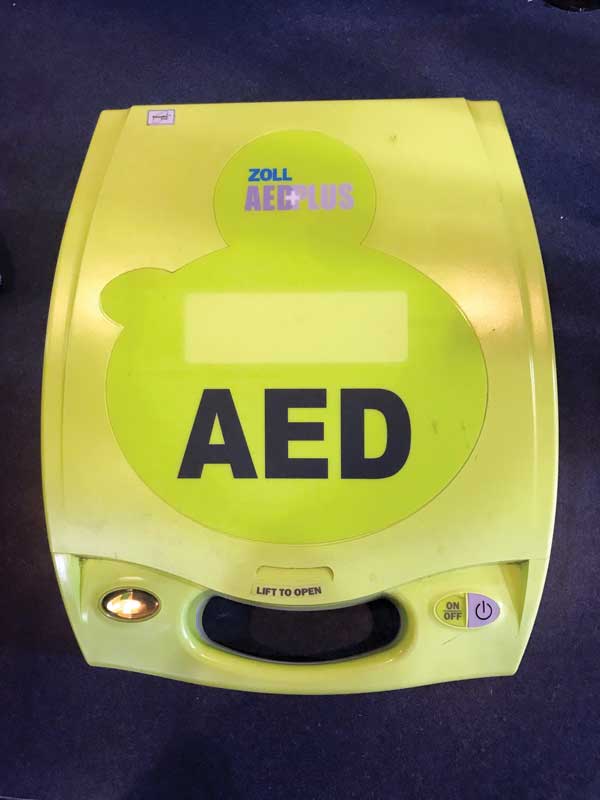Everyone has heard about the catastrophic event during a Monday night football game when Damar Hamlin, a 24-year-old professional football player, went into cardiac arrest following what appeared to be a very typical tackle. Some of the lessons learned from that night can also be applied to boaters.

The events of that night demonstrated the critical importance of knowing what to do when someone experiences sudden cardiac arrest (SCA). An awareness of the signs and symptoms of SCA, the need for an emergency action plan, and the importance of rapid implementation of both cardiopulmonary resuscitation (CPR) and an Automated External Defibrillator (AED) were demonstrated that evening.
CPR is nothing but a holding system to keep us alive by circulating oxygenated blood to the brain and other critical organs, but no matter how good the CPR provider is, CPR will not restart a heart. The only way for a lay person to restart a heart is through defibrillation. An AED is a device that can be operated by an untrained bystander. It delivers a shock to the heart only when it detects erratic electrical activity that can be brought back to a normal rhythm.
According to the American Heart Association, if a victim of SCA is provided high quality CPR and an AED is used within three minutes of the attack, the chance of survival is up to 74 percent. The chance of survival diminishes by 10 percent for each minute of delayed response. All boaters should know how to perform CPR. Coast Guard licensed captains are required to be certified in CPR. Keeping your skills current by staying certified in CPR is just the first step in saving a life.
Having an AED onboard your vessel and at your marina is critical to saving lives. The Safety Institute of Maryland provides the Chesapeake Area Professional Captains Association (CAPCA) sponsored CPR and AED training twice a year for professional and recreational boaters. The Safety Institute of Maryland provides discounts to boaters who purchase an AED. For further information on CPR training and/or purchasing an AED, please contact the Safety Institute of Maryland at (301) 767-5905, and visit capca.net for information on upcoming classes.
By Capt. Alan Karpas, safety coordinator for CAPCA